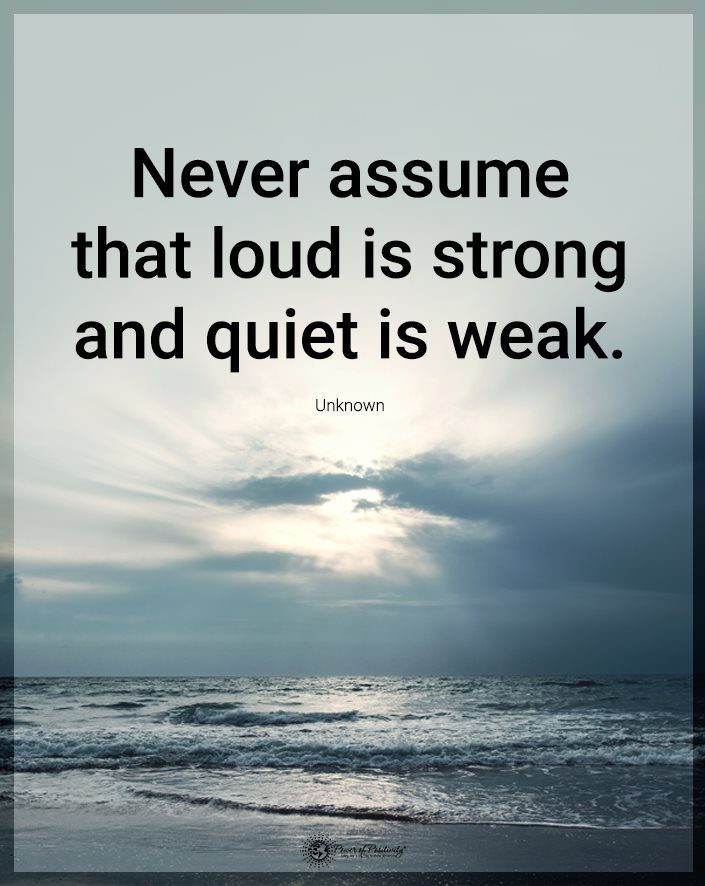Here are fifteen ways to avoid the manipulation of a narcissist.
The tapestry of human relationships often shines with empathy, kindness, and understanding. But intertwined among them are the darker strands woven by individuals who seem to thrive on control and manipulation. These are often the narcissists in our lives.
While their allure can be captivating, their intentions are rarely benign. But what if you could recognize and counteract their tactics?
Dive in as we unravel the ten behaviors narcissists detest, and arm yourself with the knowledge to maintain your autonomy.
Understanding Narcissistic Personality Disorder (NPD)
Before we look into the behaviors that can thwart a narcissist’s manipulative efforts, it’s crucial to understand what Narcissistic Personality Disorder (NPD) is.
According to the National Institute of Mental Health, NPD is a mental condition. Those with mental illness have an inflated sense of importance. They also have an intense need for excessive attention and admiration. Finally, they exhibit a lack of empathy for others. People with NPD often have troubled relationships and fragile self-esteem, vulnerable to criticism.

10 Key Behaviors That Reveal Narcissists
Understanding the behaviors that show someone may have Narcissistic Personality Disorder can be crucial in recognizing and dealing with individuals who exhibit these traits.
Here are ten key behaviors that often reveal the presence of NPD:
- Grandiosity: A pervasive pattern of grandiose behavior or fantasies where the individual sees themselves as superior or unique compared to others.
- Need for Admiration: An excessive need for admiration and validation from others, often to the point of being insatiable or requiring constant affirmation.
- Lack of Empathy: Difficulty or unwillingness to recognize and respect the feelings or needs of others. They may also dismiss them as unimportant.
- Sense of Entitlement: Believing they deserve special treatment or that rules don’t apply to them, leading to unreasonable expectations of others.
- Exploitative Behavior: Willingly taking advantage of others to achieve their ends without regard for the feelings or consequences of those they exploit.
- Envy of Others: Feeling envious of others or believing that others are envious of them, leading to resentment or devaluation of others’ achievements.
- Arrogance: Displaying haughty behaviors or attitudes, often looking down on those they perceive as inferior.
- Preoccupation with Fantasies of Success: They may express fantasies of unlimited success, power, brilliance, or beauty. They may also express ideas of ideal love, often to the point of obsession.
- Belief of Being Unique: The conviction that they can only be understood by, or should associate with, other exceptional or high-status individuals or institutions.
- Sensitive to Criticism: Reacting poorly to criticism or perceived slights, often resulting in rage or feeling deeply slighted, even if the critique was constructive or minor.
Recognizing these behaviors can be the first step in understanding the dynamics of a relationship with someone who might have NPD. It provides a foundation for people to build protective behaviors to deflect the manipulation.
Note that NPD is a complex illness that requires professional diagnosis. While you should not diagnose someone unfairly in your mind, these behaviors are manipulation – and you should protect yourself.
Fifteen Behaviors That Narcissists Really Hate
While the best option is to avoid interacting with narcissists, that’s not always possible. But when you engage in these behaviors, you can avoid becoming the victim of the manipulation.
1. Setting Firm Boundaries When You Deal With Narcissists
Establishing clear personal boundaries means defining what is acceptable and what isn’t in your interactions. When you consistently enforce these boundaries, it sends a message that you value your self-worth. Narcissists often rely on blurring or overstepping these lines to exert control.
Being firm in your boundaries protects your mental and emotional well-being and denies them the chance to manipulate and dominate.
2. Stop Seeking Validation From Narcissists
While it’s essential to trust oneself, there’s undeniable strength in seeking perspectives from trusted friends or professionals. A narcissist will aim to become the primary influencer in their target’s life, often by sowing seeds of doubt about others’ intentions.
By actively seeking external validation, you diversify your sources of affirmation and break the narcissist’s monopoly on influence.

3. Demonstrating Emotional Independence
Emotional independence is the ability to process and handle your emotions without overly relying on someone else. People with narcissistic personality disorder often position themselves as the sole provider of emotional support, aiming to create a dependency.
When you grow your emotional resilience and not turning to the narcissist for validation or comfort, you reduce their leverage and influence over you.
4. Avoiding JADE (Justify, Argue, Defend, Explain)
Engaging in lengthy justifications or explanations can be draining and counterproductive. Those with NPD thrive on these interactions. These situations provide more opportunities to twist words and manipulate the narrative.
If you refrain from always justifying or explaining your actions, primarily when they concern your boundaries or feelings, you maintain control over the conversation. Remember that they cannot destroy what they don’t know about.
As a result, you will reduce the narcissist’s chances of manipulation.
5. Practicing Self-Care
Self-care goes beyond spa days and treats. It’s about recognizing your needs and taking steps to meet them. That might mean setting aside quiet time, engaging in hobbies, or seeking therapy.
A well-nourished soul is more resilient to external pressures. When you prioritize your well-being, it becomes harder for someone with narcissistic personality disorder to exploit potential vulnerabilities or make you doubt your worth.
6. Staying Informed
Knowledge truly is power. By educating yourself about NPD and common manipulation tactics, you’re better equipped to recognize and counteract them.
This awareness can be a shield. Thus, it can help you discern genuine interactions from manipulative ones and allow you to navigate relationships more safely.
7. Limiting Personal Information Sharing
Every piece of personal information can be a tool in a narcissist’s hands. Whether it’s past traumas, fears, or dreams, they can twist these details to their advantage.
By being selective about what you share, especially in the early stages of a relationship, you ensure they have less ammunition to use against you in emotional games.
8. Don’t Let Narcissists Isolate You
Narcissists often employ a tactic of isolating their targets from friends, family, and other support systems. This isolation increases the target’s dependence on the narcissist.
If you actively maintain and nurture other relationships, you ensure a diversified support system, reducing the narcissist’s influence and control.
9. Trusting Your Instincts
Sometimes, our gut feelings act as early warning systems, detecting inconsistencies or manipulative behaviors before our conscious mind catches up.
So hone and trust these instincts. As a result, you will avoid potential manipulations or confront them head-on, armed with the knowledge that something isn’t right.
10. Seeking Professional Help
There’s no shame in seeking help. Therapists or counselors experienced in dealing with narcissistic behaviors can offer invaluable insights, tools, and strategies.
They provide a safe space to discuss experiences and validate your feelings. They can also help you develop the necessary coping mechanisms to navigate and protect yourself in narcissistic relationships.

11. Cultivating a Strong Sense of Self
A clear understanding of who you are, your values, and your worth is a powerful deterrent against narcissistic manipulation. Narcissists often prey on uncertainties, trying to mold perceptions to their advantage.
Regularly reflecting on and reaffirming your values and self-worth makes you less susceptible to their attempts to redefine or belittle you.
12. Engaging in Group Activities or Support Groups
Participating in group activities, whether hobby-based, support groups or community service, can buffer against narcissistic tendencies. These settings often promote mutual respect, understanding, and shared experiences.
They can also offer a reality check. As a result, you see the stark contrast between healthy group dynamics and the manipulative tactics of a narcissist.
13. Keeping Written Records
Documenting interactions, especially those that felt manipulative or unsettling, can be valuable. Over time, patterns may emerge that validate your feelings or concerns.
Written records can also remind you of past manipulations. Thus, they may help you stay vigilant and avoid similar traps.
14. Developing and Practicing Assertiveness
Communicating your needs, feelings, and boundaries clearly, directly, and respectfully is crucial when dealing with narcissists. Assertiveness differs from aggression; it’s about standing up for yourself without trampling on others.
Narcissists often rely on passive or aggressive responses from their targets to further their manipulative agendas.
So, when you are assertive, you can communicate your stance effectively. As a result, you make it clear where you stand and reduce the narcissist’s ability to push you into a corner.
15. Educating Others About Narcissists
Sharing knowledge about narcissistic behaviors and manipulation tactics can create a supportive community aware of these issues. When more people in your circle understand the signs and tactics of this manipulator, it becomes harder for such individuals to operate without being noticed.
This societal awareness can act as a protective barrier. Thus, it may ensure that manipulative behaviors are recognized and addressed promptly.
Final Thoughts on the Behaviors That Can Stop Narcissists
Narcissists, with their intricate web of manipulation, can be challenging adversaries in the realm of relationships. You may not be able to avoid altogether interactions with those with NPD. That’s especially true in the workplace or among mutual friends.
However, you can reclaim your autonomy by understanding their tactics and arming yourself with the above behaviors. You can also protect your well-being.
Remember, seeking support and engaging in self-care when dealing with a narcissist is essential. Your mental and emotional health is paramount, and you deserve relationships built on mutual respect and understanding.
The post Narcissists Hate When People Do These 15 Things appeared first on Power of Positivity: Positive Thinking & Attitude.






